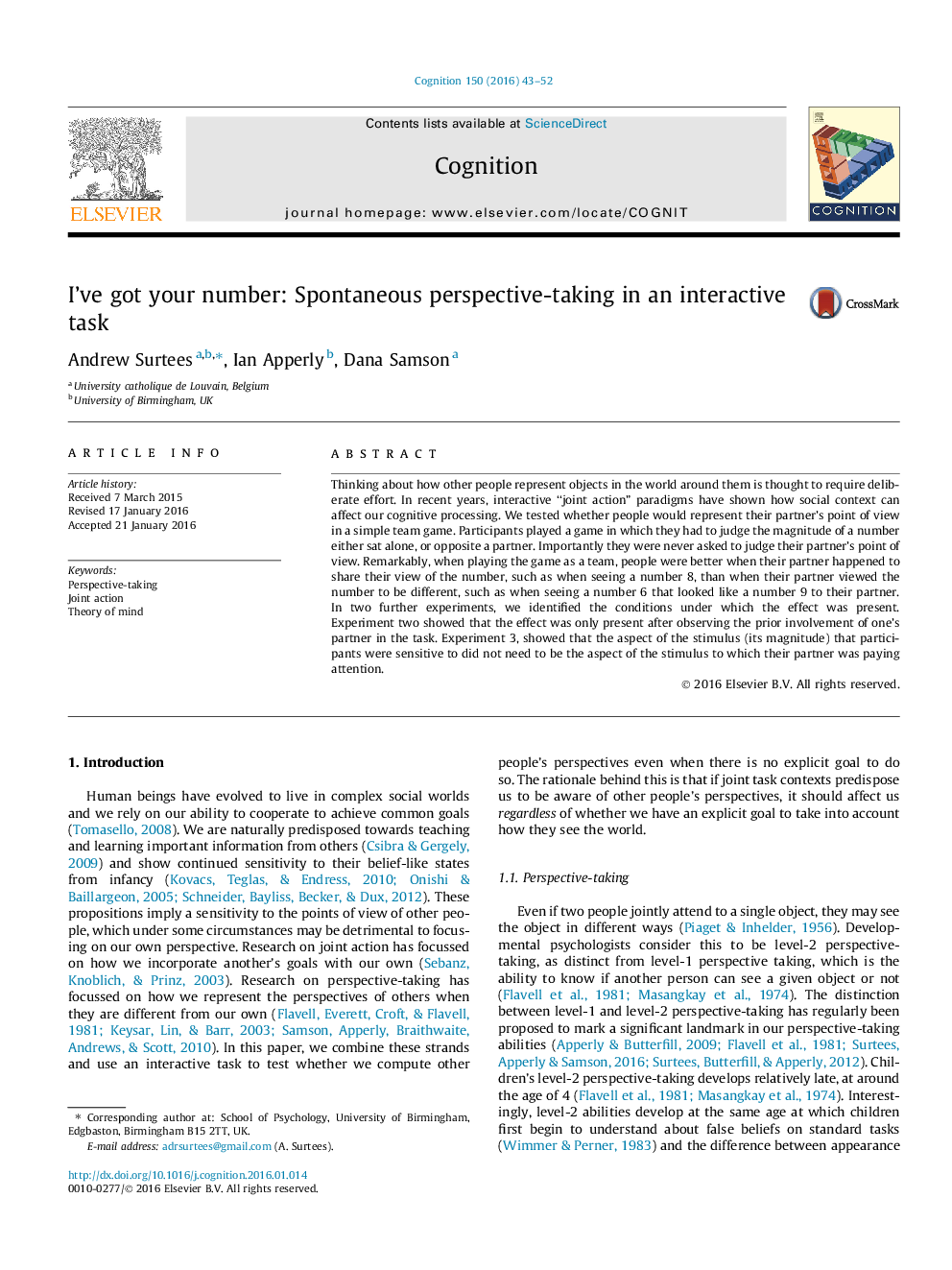| Article ID | Journal | Published Year | Pages | File Type |
|---|---|---|---|---|
| 7286211 | Cognition | 2016 | 10 Pages |
Abstract
Thinking about how other people represent objects in the world around them is thought to require deliberate effort. In recent years, interactive “joint action” paradigms have shown how social context can affect our cognitive processing. We tested whether people would represent their partner's point of view in a simple team game. Participants played a game in which they had to judge the magnitude of a number either sat alone, or opposite a partner. Importantly they were never asked to judge their partner's point of view. Remarkably, when playing the game as a team, people were better when their partner happened to share their view of the number, such as when seeing a number 8, than when their partner viewed the number to be different, such as when seeing a number 6 that looked like a number 9 to their partner. In two further experiments, we identified the conditions under which the effect was present. Experiment two showed that the effect was only present after observing the prior involvement of one's partner in the task. Experiment 3, showed that the aspect of the stimulus (its magnitude) that participants were sensitive to did not need to be the aspect of the stimulus to which their partner was paying attention.
Related Topics
Life Sciences
Neuroscience
Cognitive Neuroscience
Authors
Andrew Surtees, Ian Apperly, Dana Samson,
